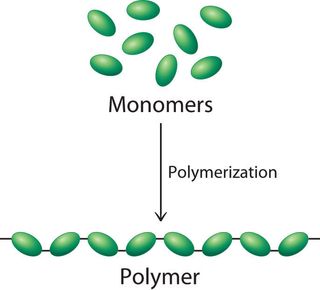Polymers in Healthcare: Improving Clinical Instruments and Treatments
Polymers in Healthcare: Improving Clinical Instruments and Treatments
Blog Article
Exploring the Varied Applications and Benefits of Polymers in Different Industries
Polymers, with their diverse range of homes and performances, have actually ended up being important in various sectors, each gaining unique advantages from their application. From enhancing safety and security and performance in the auto market to revolutionizing clinical devices in the health care industry, polymers play an essential role.
Automotive Market Applications
Polymers play a crucial role in enhancing the performance and longevity of various components within the automobile field. One prominent use of polymers in the automobile market is in the manufacturing of light-weight parts.

Medical Care Sector Benefits
In numerous medical care applications, the advantages of utilizing polymers are widely recognized for their diverse series of useful buildings. Polymers play an essential role in the healthcare industry due to their adaptability, biocompatibility, and cost-effectiveness. Among the primary advantages of polymers in healthcare is their ability to be customized to details needs, such as adaptability, durability, and biodegradability, making them ideal for a wide variety of clinical applications.
Polymer-based materials are extensively used in clinical tools, such as catheters, implants, prosthetics, and medication shipment systems, because of their biocompatibility and ability to mimic all-natural cells. These materials can reduce the threat of sensitive reactions or rejections, enhancing patient security and results. Furthermore, polymers are light-weight, making them suitable for wearable medical devices and making sure client comfort.
In addition, polymers enable the advancement of innovative treatment techniques, such as hydrogels for cells design and nanocomposites for targeted drug distribution. Their simplicity of handling and sterilization makes them necessary for maintaining high requirements of health in health care setups. Overall, the diverse benefits of polymers add substantially to innovations in medical modern technology and patient treatment.
Ecological Benefits of Polymers
:max_bytes(150000):strip_icc()/three-dimensional-model-of-polyvinyl-chloride-165874889-5c425ea7c9e77c000188be6d.jpg)
Additionally, polymers can add to energy cost savings as a result of their lightweight nature. In markets such as transport, light-weight polymer products can assist decrease gas intake and greenhouse gas exhausts. Additionally, polymers can enable the development of energy-efficient items such as insulation products that boost power conservation in buildings.
Additionally, polymers play an essential role in decreasing water contamination. The usage of polymer-based filtering systems can efficiently remove pollutants and contaminants from wastewater, safeguarding water sources and ecological communities. On the whole, the ecological benefits of polymers make them important assets in advertising sustainability and eco-friendly practices throughout different industries.
Polymers in Electronic Devices and Modern Technology
Thinking about the enhancing demand for innovative and lasting services in modern sectors, the combination of sophisticated polymer technologies in the image source world of electronics and technology has actually emerged as a pivotal approach for driving effectiveness and efficiency. Polymers have actually revolutionized the electronic devices industry by making it possible for the manufacturing of lighter, more adaptable, and long lasting electronic devices. From smart devices to medical tools, polymers play a critical function in enhancing item layout and performance.
One significant advantage of polymers in electronic devices is their shielding properties, which aid safeguard fragile electronic elements from ecological elements and electric interference. Furthermore, polymers are important in the growth of flexible screens, wearable technology, and printed electronic devices, providing countless possibilities for producing clever and interconnected devices.
Moreover, the usage of polymers in electronic product packaging has actually resulted in innovations in miniaturization and thermal management, enhancing the general performance and dependability of electronic systems. As modern technology continues to develop, the versatility and versatility of polymers will undoubtedly drive even more advancement in the electronic devices sector, forming the future of technology.
Role of Polymers in Building and Facilities
The assimilation of innovative polymer products in building and construction and framework tasks has actually revolutionized the way structures are designed and constructed in contemporary times. Polymers provide various advantages in the building market because of their adaptability, durability, and cost-effectiveness. One essential role of polymers in building is their usage in layers and sealants, moved here offering protection versus environmental aspects such as dampness, UV radiation, and deterioration. Additionally, polymers are utilized in the production of light-weight and high-strength composite materials, enhancing the structural stability of structures while lowering overall weight.
Furthermore, polymers play a vital function in lasting building practices by making it possible for the growth of energy-efficient structures. Insulating products made from polymers assist regulate indoor temperature levels, minimizing the requirement for home heating and cooling down systems and ultimately reducing energy usage. Additionally, using polymer-based composites in infrastructure tasks such as bridges and roads boosts their longevity and lowers maintenance prices. Generally, the incorporation of polymers in building and construction and infrastructure displays their considerable impact on contemporary design practices.
Verdict
In conclusion, polymers play a crucial duty in numerous industries such as vehicle, health care, ecological, electronic devices, and building and construction. Their flexible residential properties make them useful in developing cutting-edge services and items. From enhancing gas effectiveness in vehicles to boosting medical gadgets, polymers supply numerous benefits. Furthermore, their influence on minimizing waste and promoting sustainability highlights their significance in modern applications. The prevalent use polymers shows their substantial payment to advancing modern technology and enhancing web high quality of life.
Report this page